Welcome to Apologetics!
In this event, students answer a question that requires them to present a defense of basic tenets of the Christian faith. They can prepare notes in advance, but they only have four minutes to get ready to speak on the topic they select.
Judges for this event must affirm the Apologetics Judge Statement of Faith.
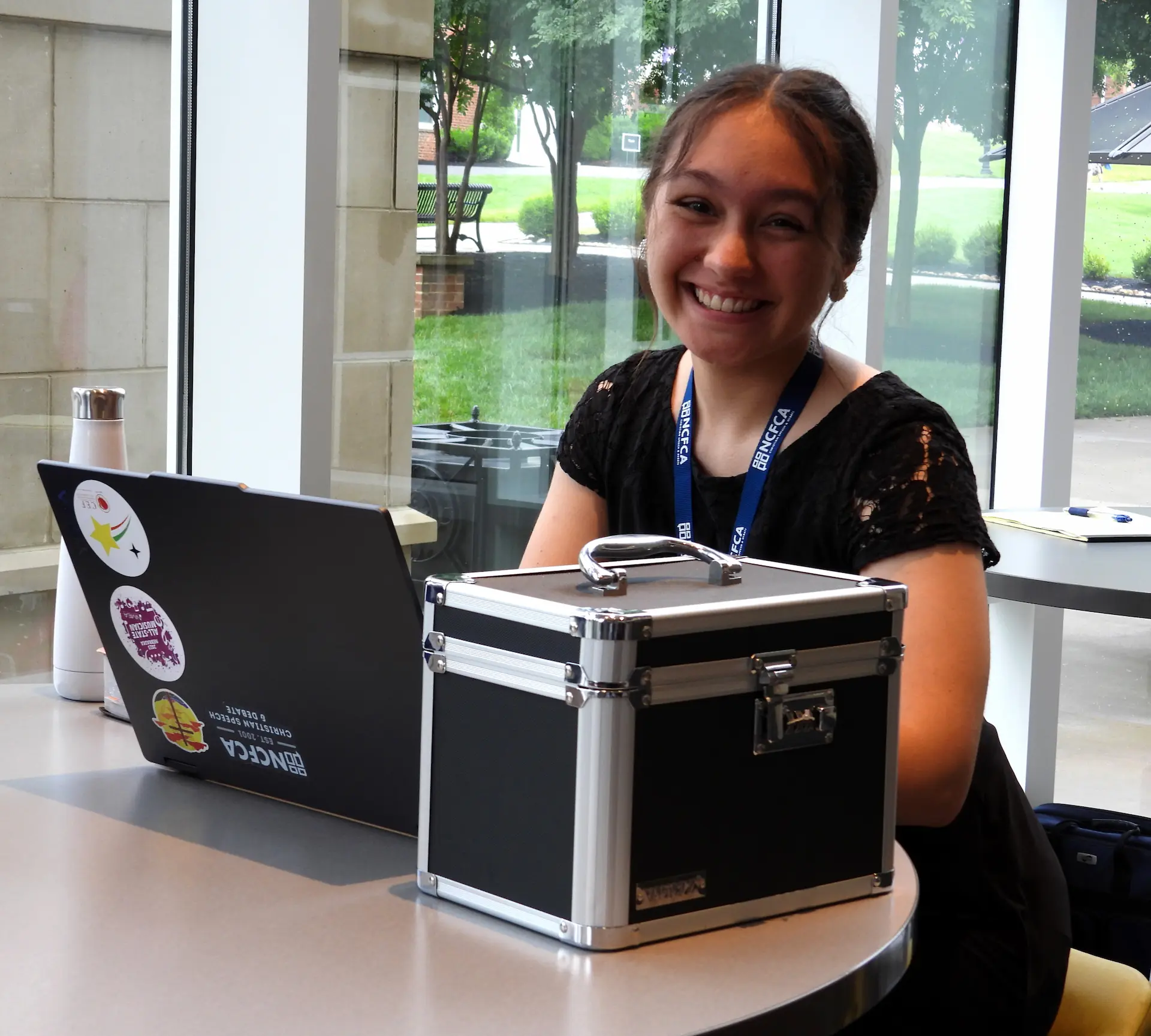

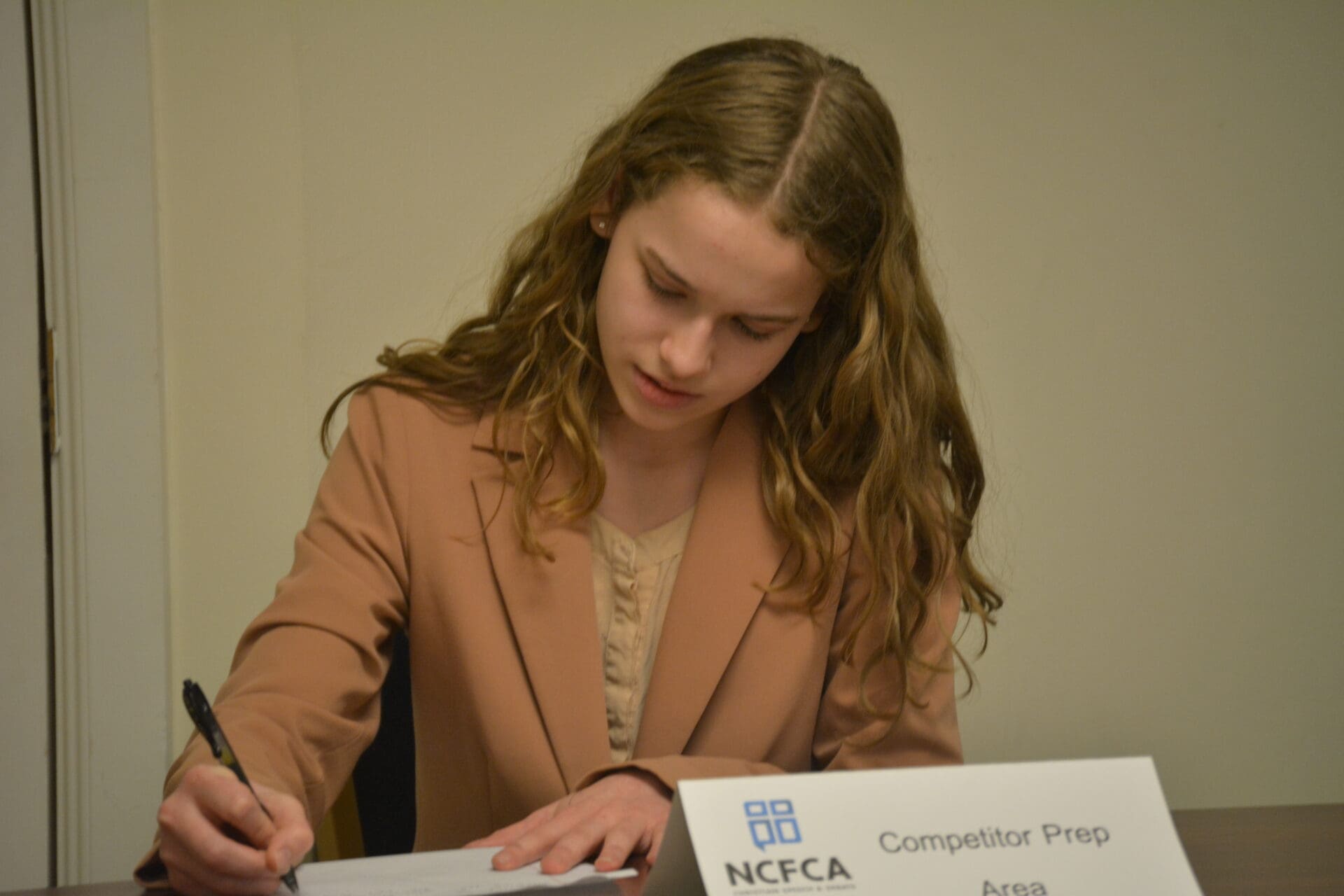
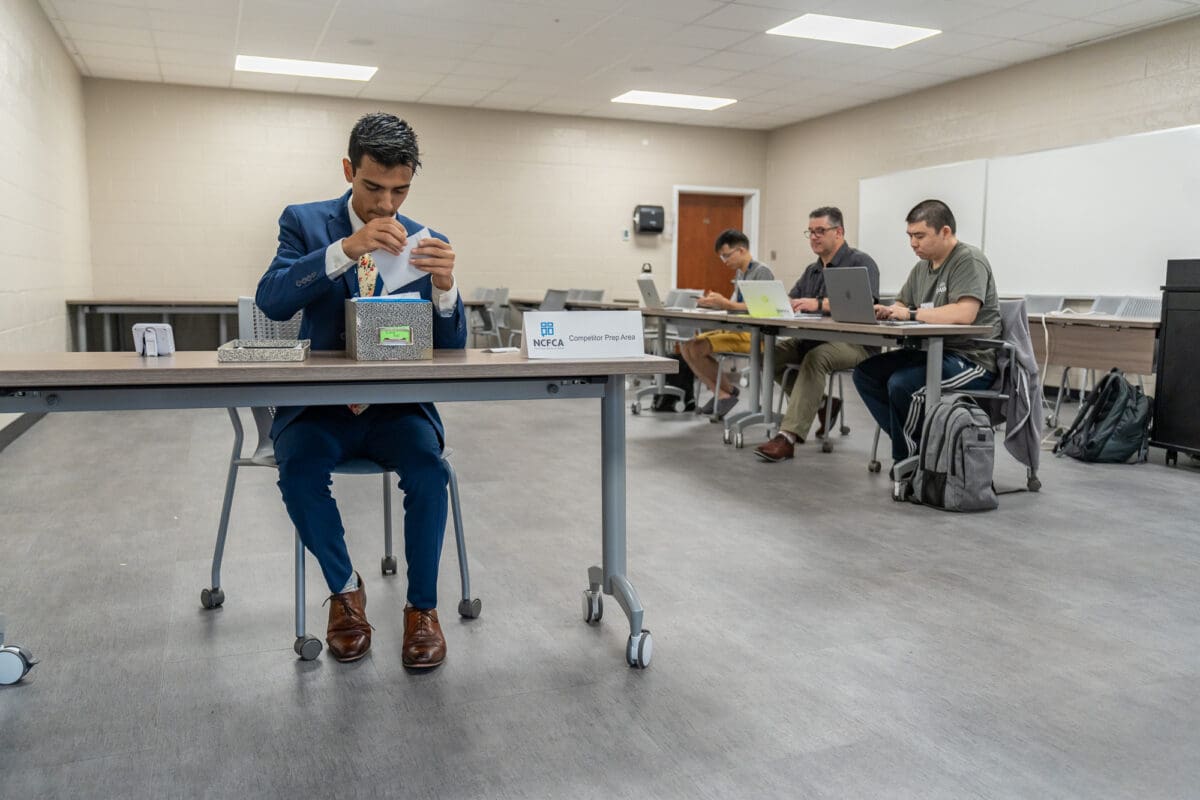
How This Event Works
We have a published list of foundational and application questions about the Christian faith that students can study and research in advance. They can prepare written notes for each question and store those notes in a box which they are allowed to bring to the round, but they don’t know which questions they will face until they arrive in the competition room. Once they draw a “topic card” with their two choices, they have four minutes to find any notes they would like to use from their box, check anything they would like to review in the Bible, and prepare the speech they will deliver.
Strengthen Your Faith
Featured Resources
Learn how to tackle this rewarding event.
Apologetics Journal: Preparation Prompts & Help
This 200+ page Google Doc, accessible from any mobile device, is perfect for recording your discoveries and strengthening your faith. You’ll find three levels of study resources along with additional links to fuel your investigation of 48 Foundational Questions and 48 Application Questions about the Christian faith. Create your own digital journal by making a personal copy. Then, click on the topics from the Table of Contents to record stories, scriptures, or sermon notes. Not ready for digital? Then print the journal and write your discoveries by hand.
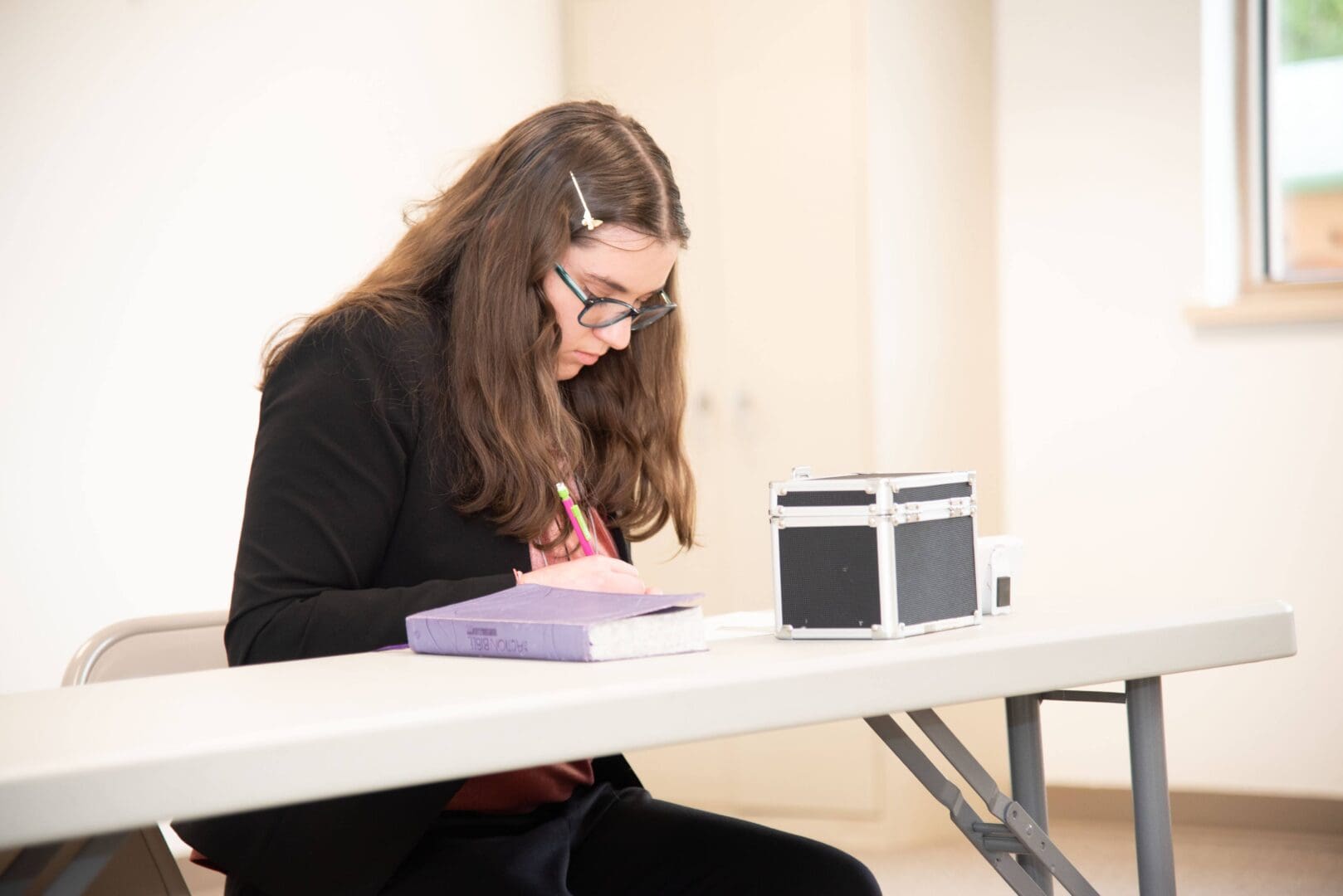
Intro to Apologetics Kit
With six hours of instruction and activities, an easy-to-follow facilitator guide, printable student activity packets, and slides, even a novice parent can successfully lead students through Intro to Apologetics. Recordings of the live event are also available for family or group use.
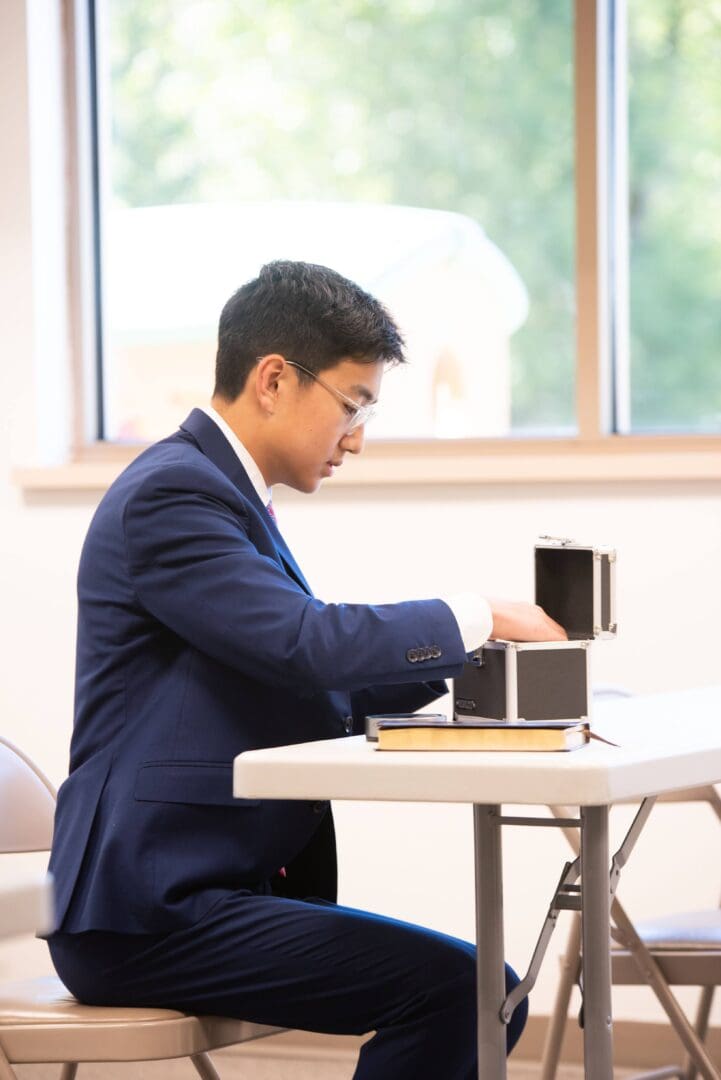
Apologetics Intensive Kit
Go beyond the basics. Students discover how to address the relevant issues of today with the timeless truth from Scripture. Now we’ve packaged our resources into a convenient Intensive Kit so that you can facilitate conversations with your students at home or host a local event with friends.
With six hours of instruction and discussions, an easy-to-follow facilitator guide, printable student journals, and slides, even a novice parent can successfully lead students through this intensive. Recordings of the live event are also available for family or group use.

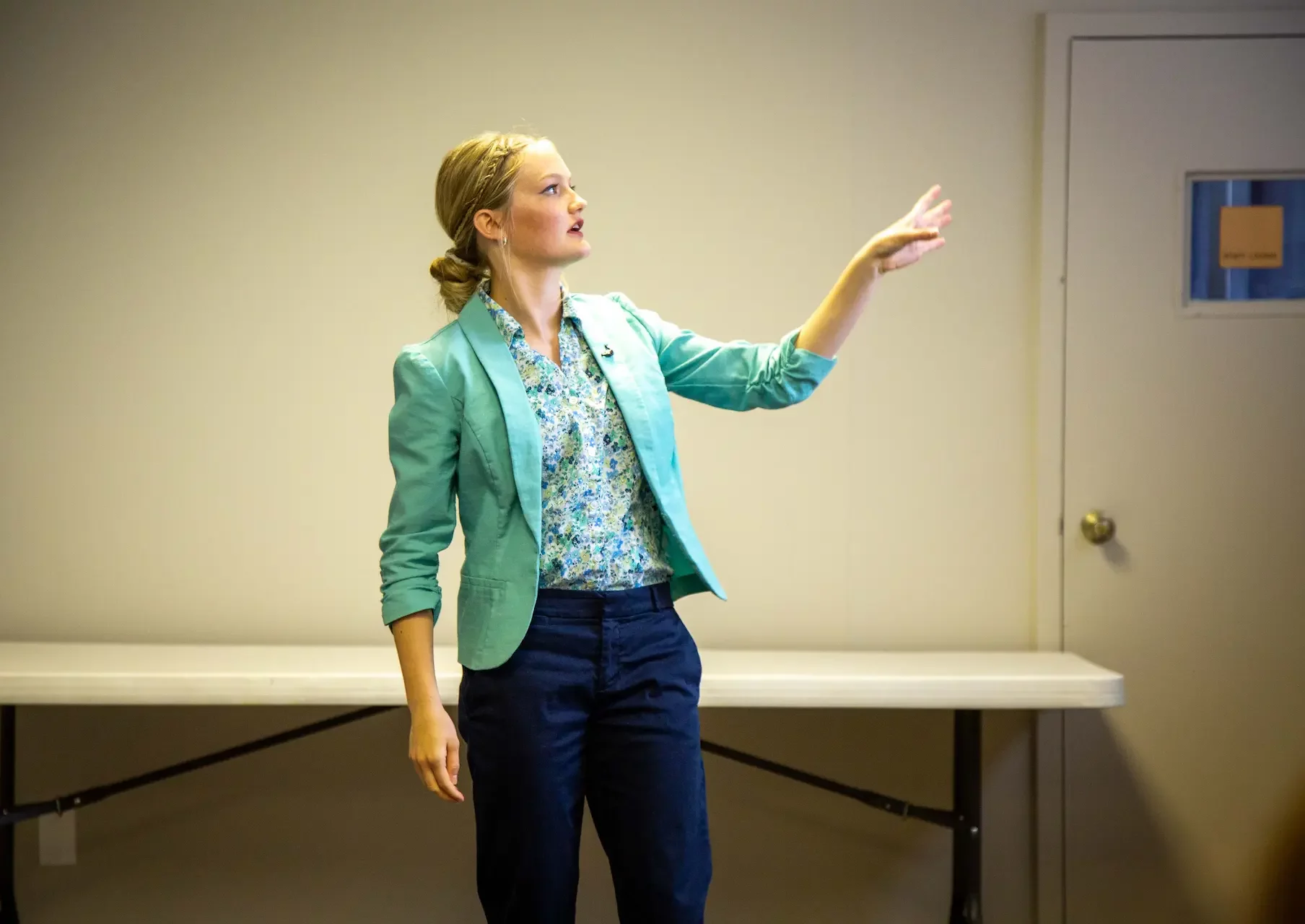

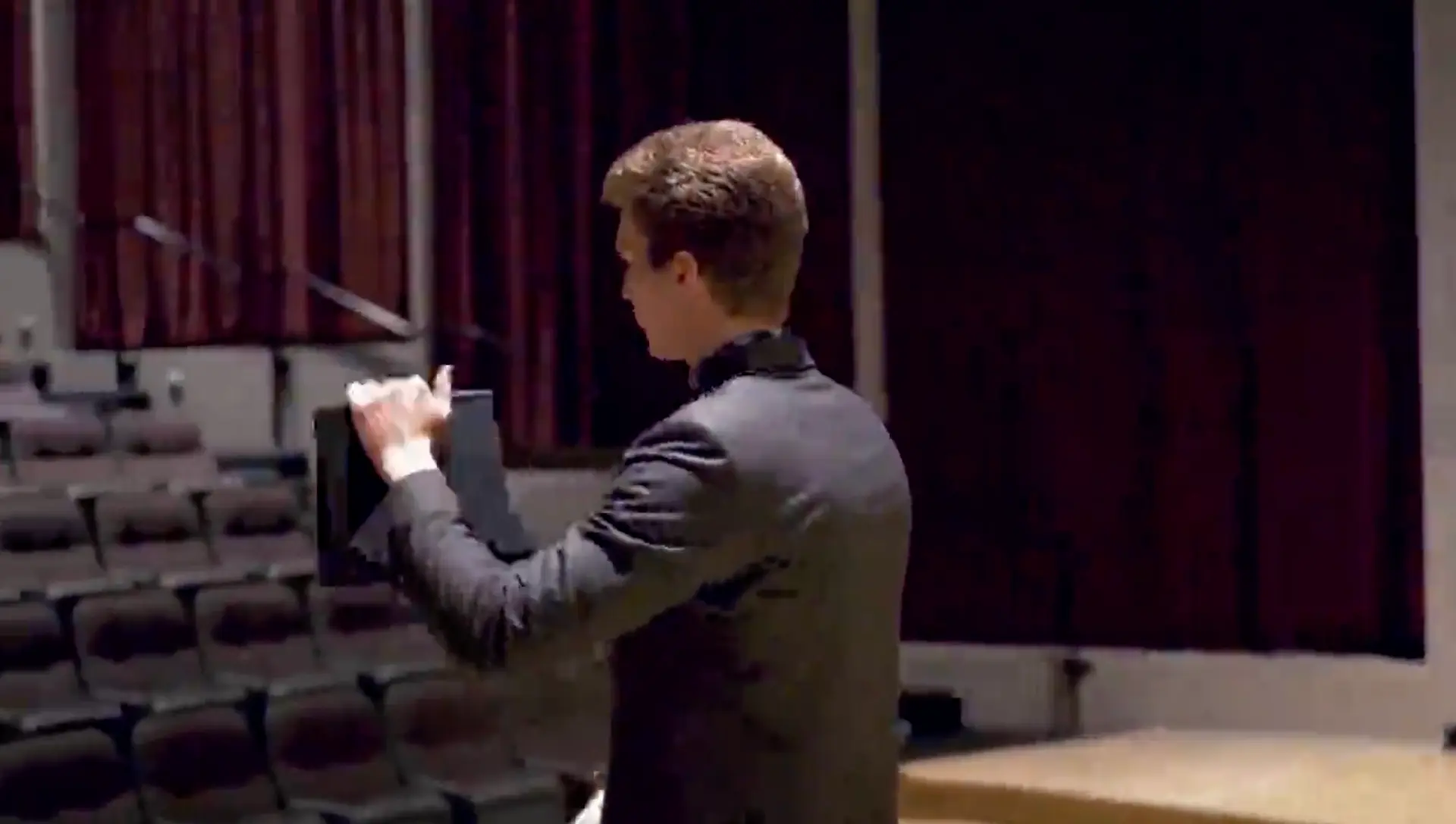

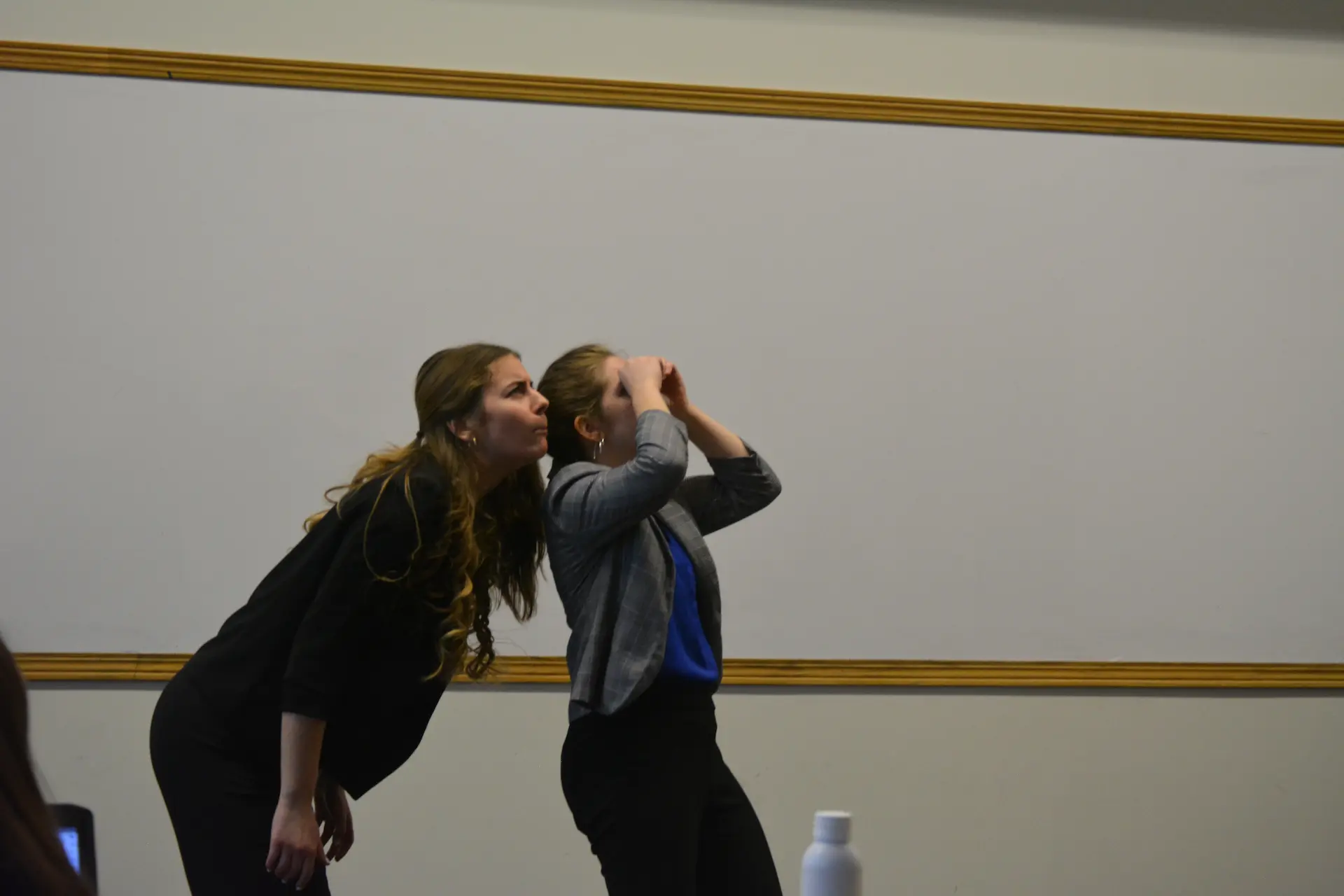

Apologetics FAQs
Why should I participate in Apologetics?
Apologetics has great personal value. Like the other Limited Preparation events, Apologetics provides students with heightened analytical skills, increased adaptability, and increased performance skill. Students will also:
- Build their faith. Apologetics invites students to investigate not only what they believe but why they believe it.
- Increase ability to help others. Apologetics allows students to challenge, encourage, and edify others.
- Prepare their hearts for what God has in store for them. As students prepare to share, the most important thing they can do is prepare their heart.
How many times do competitors give their speeches during the tournament?
During preliminary rounds, competitors will give a speech three times for every event in which they are entered. If they advance to elimination rounds, they may give a speech in a SemiFinal or Final round as well.
How are NCFCA rules and policies enforced?
Every type of competition has rules, and NCFCA is no exception. Our tournament Compliance teams and our National Adjudication Team work throughout the season to ensure a fair and level playing field for everyone involved. Learn more about how rule enforcement works by visiting our Compliance FAQs page.
How will I know what topics I will draw in a tournament?
In the Apologetics rounds, the two topics from which to choose on the topic card will come directly from the Apologetics Topics list.
What materials may I bring into the competition room for my Apologetics prep time?
Competitors may use their Bible and any prepared notecards to help with crafting their speech. They may also use their writing utensils and blank notecards to prepare more cards for use during the speech. Competitors may bring all of these materials, including any topic organization, into the round.
Can I access the internet during prep time? Can I bring my phone to take notes?
Internet access is not allowed. Phones, computers, and other electronic devices may not be used for reference.
Can I use my phone during prep time, since I have the Bible app on there?
Phones, computers, and other electronic devices may not be used for reference. Only what is listed in the rules may be used.
If I don’t use all of my 4 minutes of prep time, can I add it to the 6 minutes for my speech?
Unused preparation time may not be added to the speech time.
Do I have to state the topic verbatim in my Limited Preparation speech?
The judges will have a list of all the topics assigned to each competitor, so they will expect to hear exactly what is on that list. We recommend that competitors include that topic early into the speech in order to avoid confusion and a negative reflection on the ballot.
Do I need to quote a Bible verse in my Apologetics speech?
While no rule requires a Bible verse to be quoted, a well-reasoned defense and thoughtful application of basic tenets of the Christian faith will most likely require substantial Scriptural support for effective communication.
Do I have to cite the chapter and verse of Scripture?
Any source used must be verbally cited, including Scripture. While citing both the chapter and verse(s) when using Scripture strengthens the credibility of the speaker, other forms of verbal citation such as using the book name alone is sufficient.
Can our club share Apologetics cards?
Your speech should be something that you have written or created. This includes Apol cards. You should not cut and paste others’ work, unless you are citing that work as theirs. However, sharing cards so that others may read and use that information in their own synthesis and growing understanding of the topic is acceptable. Our caution is that you should treat other students’ cards as their property, as you would a published source. Do not just copy and paste their words, phrases, etc.
Coaching Tip: Many clubs handle Apologetics preparation like Extemp, where they may divide areas of research to study and be ready to share resources (bible verses, commentary articles, etc.) and thoughts. Others can glean from their study, and the group discussion aids further understanding. The rest of the club members take their own notes of that discussion to create their own cards. Sharing information in this way helps guard against the temptation to take others’ work if actual cards or files were to be shared.
How does NCFCA view plagiarism?
NCFCA does not approach a rule infraction as an intentional action, but rather an opportunity for effective communication growth. The rules and the adjudication process exist to maintain fair play for the competition, which is a tool for growth. NCFCA does not seek to judge the heart of competitors or affiliate families. However, we do not deny the refining heart process that happens through the adjudication process; in fact, we embrace it because it allows the Lord to sanctify His children. This refining is part of how NCFCA, including staff, parents, and students, fulfills our mission, “to challenge and equip ambassadors for Christ to communicate truth with integrity and grace.” Whether intentional or not, plagiarism will be adjudicated.
(Watch 🖥)
How can I tell if I’m plagiarizing?
A bright-line test is to ask, “Is this mine? Did I make this, or did I receive this?” As a fundamental commandment, “Thou shalt not steal” (Exodus 20:15), we ambassadors for Christ should take issues of academic ownership as seriously as we do physical, material ownership. You should not copy and paste sentences or even phrases and call it yours. Even if you are summarizing someone else’s ideas, they should receive credit. If it’s unclear to you, asking for advice from parents and coaches is always wise.
Do I have to cite a tune that everyone knows like “Silent Night”?
Common knowledge that is known to most people does not need to be cited in any way (e.g., George Washington was the first U.S. President, Jesus rose on the third day, words to a universally known hymn such as “Amazing Grace”). Some tunes may fall into the category of common knowledge and not need to be cited. However, a tune considered “well-known” can be somewhat subjective. (Watch 🖥)
Rules Changes Overview for 2024-2025
The changes to Speech Rules for 2025 have been approached with three major goals in mind:
Simplification
Transparency
ClarificationSimplification:
For the past several years, the Speech Guide has contained General Rules, Timekeeping Rules, Category Rules, Event-Specific Rules, and Script-Submission and Script-Use Rules. The 2025 Speech Rules will only contain rules for each specific event. (i.e., All rules for Apologetics will only be in “Apologetics Rules.”) Timekeeping guidelines, script-submission guidelines, tournament protocols, and other helpful information and examples will still be found in the 2025 Speech content but will not be considered rules which could receive a penalty.Transparency:
The 2025 Speech content now includes a Penalty Addendum which lists the type of penalties that can be applied to certain rule violations, along with examples of each. Find these in the Compliance FAQs.Clarification:
Most of the changes to the Speech Rules for 2025 come from separating rules that can receive a penalty from tournament protocols and guidelines. Other changes come from rewording rules for the sake of clarity.Rule Changes for All Speeches for 2024-2025
An in-text parenthetical for supporting material is strongly recommended but no longer required. (Ballots will provide the opportunity for judges to weigh academic integrity, so the rules will only require verbal mentions and Works Cited.)
Timekeeping rules have been simplified. (The simplification allows for less confusion.) Watch 🖥
Which rules changed in Limited Preparation speeches for 2024-2025?
Chosen topic stated early in the speech has been modified to only require stating the topic. (Judges will determine the effectiveness of when the topic is stated.) Watch 🖥
Which rules in Apologetics changed for 2024-2025?
Scriptural support must be presented has been removed as a rule. (Judges will be able to reflect the level of Scriptural support on the ballot.) Watch 🖥
Where on the ballot can we see timer penalties applied?
Penalties, including timer penalties, are found at the bottom of the ballot.
If a penalty is applied to my speech, does Tab change the judge’s original ranking?
Tab does not change the judge’s original ranking on the ballot.
When and how do competitors get their ballots?
After the tournament, ballots will be available from the Ballots button on the right side of the dashboard just above the Tournament Results button.
What if my limited prep topic is not releasing in an online competition room?
- Verify that the draw time has arrived. (Competitors can draw any time after the assigned time but not before. Check the time-zone of your computer.)
- If the draw time has just arrived, wait at least 60 seconds and try again.
- Check that the clock on the device is set to the correct time and aligns with the times shown on postings. (Posting times are based on the time-zone setting of the device, but it is possible for the clock to be manually set to a different time.)
- If draw time is not the issue, the problem is generally with the competitor’s connection speed. Keep trying and take steps to improve the connection speed.
Will there be changes to speech ballots this year?
Yes! We have made significant changes to the ballot this year.
The speech ballots will have a dropdown menu for each judging criteria category adding up to the total number of points for that competitor. This total will yield a ranking for the room. Judges must adjust rankings to break any ties.
You can view the ballot rubrics and updated ballot category descriptions in the Speech Guidelines. The numbers on the ballot rubric correspond to the numbers on the electric ballot dropdown menu. This is similar to the speaker points in the debate ballots but with the added layer of ranking and reranking all the competitors in the room before submitting the ballots instead of simply choosing the winner in the debate ballot. Watch 🖥
Does NCFCA provide a printable copy of the rules?
We have transitioned to using our NCFCA.org website as the official means of publishing all competition rules and guidelines. This change allows for improved navigation, organization, and content presentation options, especially for new families.
However, we realize that some participants also like to prepare using printed documents. We offer a print-button option on all of our rule pages, but the formatting options are limited and can be cumbersome with some browsers, so here are some tips you can use to save paper and ink if you feel like you need to print the rules.
Make your own printable pages. You can easily copy the rules you want into a Google Doc and the formatting will be maintained nicely.
- This step-by-step guide will show you how to start a Google Doc.
- Once you have a Google Doc open along with the website rules on a different browser tab, use your cursor to highlight the section of rules you would like to print and then simultaneously press the keys: CTRL/C (PC) or COMMAND/C (Mac). Note: The process works best if you highlight only one set of rules or one set of guidelines at a time (without highlighting over the break between rules and guidelines).
- Next, place your cursor in the document and simultaneously press the keys: CTRL/V (PC) or COMMAND/V (Mac). This should make the text appear in your document.
- This process will work in a similar way with Microsoft Word and other document options.
- With the text copied into your own document, you can change the font size and margins to your own preferences.
Avoid duplicate content for speech rules by printing the guidelines only once for each event category (limited prep, interpretation, and platform). The guidelines for each speech category are replicated on the appropriate event pages. The exceptions to this are that Digital Presentation has an extra “Digital Presentation Protocols” section, Apologetics includes the topics, and Extemporaneous has unique timing protocols.
Please keep in mind that our website contains the official copy of all rules. We will alert participants through our affiliate communications emails if we make any substantive changes to rules or guidelines, but it is the responsibility of competitors to follow the officially published rules.
Do we still have a grace period for speeches exceeding the time limit?
The automatic 2-rank penalty will only be applied after 15 seconds of the speech time limit. Find clarification on overtime in the event guidelines under “Timekeeping Protocols” (see Apologetics as an example), in the Speech Head Judge Instructions, and as an example of a timekeeping rule penalty in the Compliance Penalty Addendum. Keep in mind that while the grace period allows for small mishaps and miscalculations, judges may still consider the time limit of the speech event as they rank. We advise competitors to prepare for these variables by continuing to practice a speech under the time limit.
Find Your Voice, Shape Your Future
Join us as you embark on a transformative journey to become a powerful and effective communicator.
